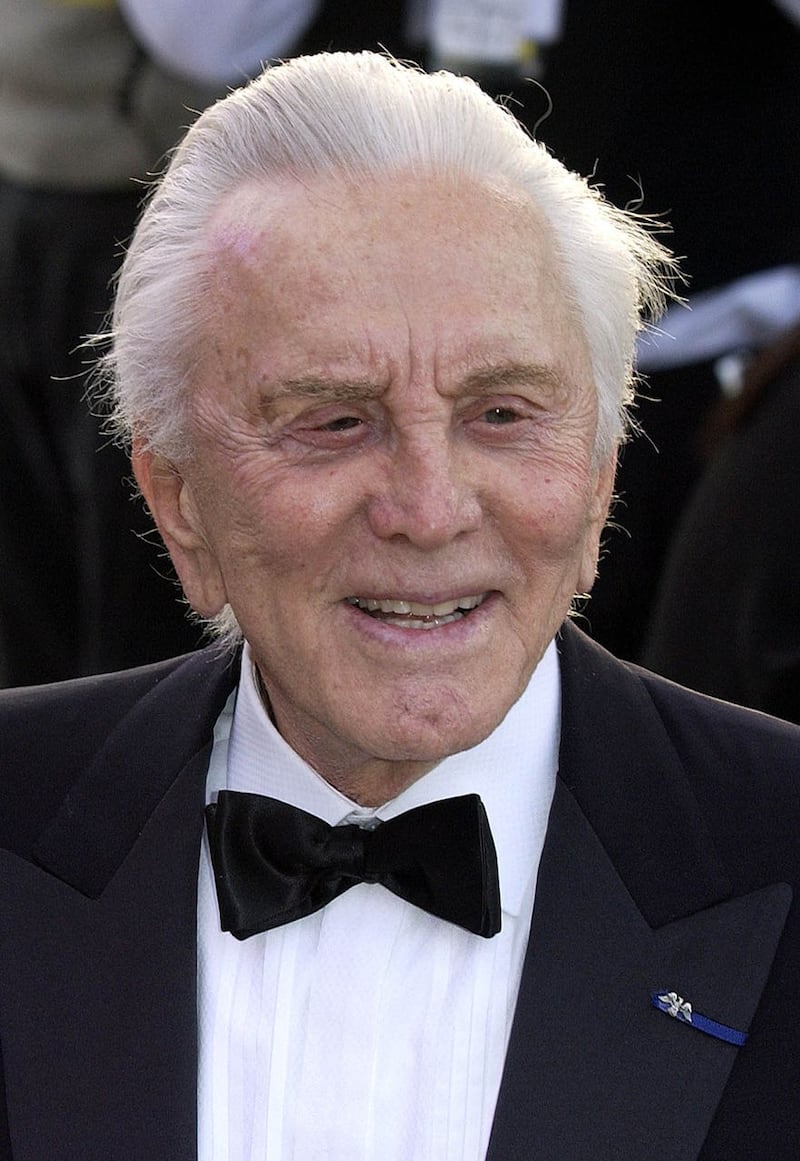Kirk Douglas made more than 80 films during a glittering career but said one of his proudest roles was the one he played in helping to break the infamous Hollywood “blacklist”.
The maverick actor was both star and producer on the 1960 historical epic Spartacus, the film for which he remains best known for.
During the early years of the Cold War, actors, writers, directors and musicians suspected of having communist sympathies were among those put on a Hollywood “blacklist” barring them from working in the entertainment industry.

It was in response to fears communists had infiltrated Hollywood. Despite the ban, Douglas – who died on Wednesday aged 103 – and his production company secretly hired Dalton Trumbo to pen the script for Spartacus.
Trumbo, whose life was made into a 2015 biopic starring Bryan Cranston, was one of the Hollywood 10- a group of producers, directors, and screenwriters who were jailed for refusing to cooperate with the House Un-American Activities Committee in 1947.
Upon his release, he continued to write either through a pseudonym or by having other writers act as a front for him.
Douglas decided to defy the blacklist for Spartacus. In his 2012 memoir I Am Spartacus!: Making A Film, Breaking The Blacklist, Douglas explained that originally producer Edward Lewis was used as a front for Trumbo.
But, Douglas said, he and Lewis felt so strongly about the injustice of the list that they decided to go into open revolt.
In the book, he says he told Trumbo that once the film was finished, “not only am I going to tell them that you’ve written it, but we’re putting your name on it”.
In August 1960, the studio Universal-International announced that Trumbo would receive a full screen credit
The blacklist was effectively broken. Speaking to the Jewish Chronicle in 2012, Douglas said: “I have been working in Hollywood over 60 years and I’ve made over 85 pictures, but the thing I’m most proud of is breaking the blacklist.”
And in a 1991 interview with the Los Angeles Times, Douglas said his decision to give Trumbo a screen credit was motivated by what he saw as Hollywood’s “hypocrisy”.
He said: “What I was fighting against was the hypocrisy in Hollywood, where the heads of the studios were using these blacklisted writers and just looking the other way, not paying them their full salary, making them use different names.”
Despite Douglas’s claims, members of the Trumbo family have criticised him for what they saw as one man taking the credit for the work of many.
Trumbo’s widow, Cleo, wrote a letter to the LA Times in 2002 and said that “no single person can be credited with breaking the blacklist”.
She credited the blacklisted writers themselves with breaking the ban.








